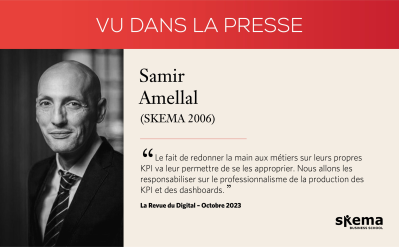News

How Empathy Can Help You Be Successful In Business, By Ajitabh Das (SK MBA 2010)
We can become selfish creatures when our interests are at stake. And when the pursuit of those interests becomes challenging, we sometimes compromise our integrity by cheating to get what we want. In the cutthroat corporate world, we’re persuaded to get our bread buttered first. Because in our mind lies a socially conditioned belief that to succeed sometimes one must adopt deception as a tool to outsmart the competitor. But by cheating to get what we want, can one always succeed in fulfilling one’s self-interest? The game of Prisoner’s Dilemma suggests otherwise.
Cooperation is the best alternative in the pursuit of self-interest
The game of Prisoner’s Dilemma illustrates how human psyche shifts its goalposts between cooperation and deception. In this game, the two suspects, involved in a bank robbery, are brought to a district attorney to confess their crime. Both the suspects mull certain options for a safe exit.
If both maintain their silence by not confessing to the crime (that means the two cooperate with each other) then each one gets a minimal one year in prison; if one defects by implicating the other one then the defector goes scot-free whereas the culprit receives a three year of imprisonment; or if both confess (that means both defect), they will each spend two years in prison. What comes out of this scenario is that by cooperating, people from both sides can reap maximum benefit.
Cooperating in business like any other human affairs yields a better result than defecting. Deception might sometimes appear to be a profit-making affair but in long-turn you’ll be a loser if you cheat on your partner. Cooperation appears in behavior only when you, instead of keeping yourself in the center, recognize your colleague or client’s self-interest as well. The ability to recognize your colleague or client’s interest and then letting him take his fair share is a consequence of empathy.
Empathy acts as a moral detergent to selfishness
David Brooks, the New York Times Editor, says “the push of selfishness is matched by pull of empathy." Empathy brings a humane angle to any business issue. When you behave empathically while dealing with your clients, your morally induced reasoning will reduce the level of your selfishness. Being empathetic in today’s business world is a virtue because it creates a favorable atmosphere for fostering a sustainable relationship with the clients.
With an empathetic mind, you are also better equipped to sense your customer’s pain; tomorrow, if the market changes then the same empathetic mind will oblige you to change the style of functioning to respond to the pain of your customers. Thus, empathy stops you from becoming obsolete in business.
Nurturing empathy in employee’s mind humanizes the business environment. Empathy will certainly not purify themind of someone who would deceive anyway, but, a humanized mind will aptly weigh the options of using the tool of deception or cooperation by keeping a larger picture in mind. That larger picture will create an atmosphere of sustainable business development, and ultimately success.

Article by Ajitabh Das, Senior Writer, SAP News Center, SK 2010 (source Forbes)
Ajitabh is a SKEMA MBA graduate (with specialization in Marketing). He has a multicultural work experience in France and India, attributed to a multidisciplinary training at SKEMA Business School, Sciences-Po and Bénarès Hindu University (India). He currently works as a “Digital/Content Marketing Advisor” at SAP.




